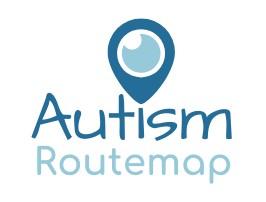Why does my child copy what I say? Part 1

So, you ask your child, “Do you want an apple?” and instead of saying, “yes” or “no”, they reply, “Do you want an apple?” Leaving you flummoxed as to whether or not they want the apple!
Many autistic children echo language either immediately after they hear it or some time later. Often, the words appear to be meaningless and unrelated to events going on around them. Parents often feel very frustrated by this behaviour and wonder how they should respond. Ignore it? Try to stop it? Change it?
To address the response question, let’s firstly look at why children produce “echolalia” – the word often used to describe echoed language or repeating what someone else has said.
Autistic children typically have a different learning style when it comes to acquiring language. Non-autistic children usually begin speaking by saying single words (like, “Dadda”) which then leads to word combinations (like, “Dadda book”) and eventually, to sentences (like, “Dadda, let’s read a book.”). Autistic children, on the other hand, may start with phrases or sentences. Often these are words they’ve heard someone else use and they are copying them. It’s not uncommon for first words to be a phrase or sentence the autistic child has picked up while watching their favourite TV programme. This style of learning “chunks” of language happens because the child does not have the capacity to learn language in the usual way. Rather, they are relying on their memory to re-produce language they have heard.
Well, you may be thinking, “that’s all good and well” but “how can I get my child to produce more meaningful language?” The answer to that is that it’s a process. An important first step is to recognise that your child may well be using echoed language to communicate with you. In the absence of being able to say exactly what their wants or needs are, they are using what they have available to them. So, repeating, “Do you want an apple?” may be their only way of saying, “Yes, I do want an apple”.
To help your child develop vocabulary and sentence structures, model sentences for them. Hand over the apple and say the words that they would be saying if they wanted an apple, (“Yes please, I want an apple”). If they push the apple away, then you give them the words they would need to be able to express that (“No apple thanks”).
The key is to recognise that echolalia may be the first rung on the ladder of your child’s spoken language growth. Just because they are not looking at you or using meaningful language doesn’t mean that they are not trying to get a message across. Help your child with the ability to form meaningful sentences by being “them” and modelling what to say.
In the next blog, we’ll look at some of the other reasons for echolalia and how to respond.
To your parenting journey!

